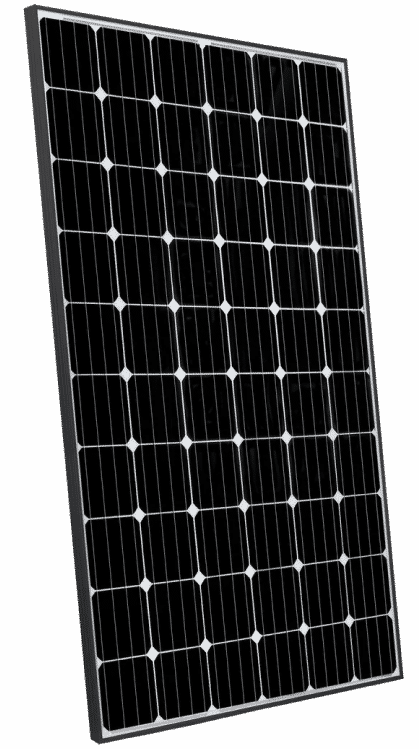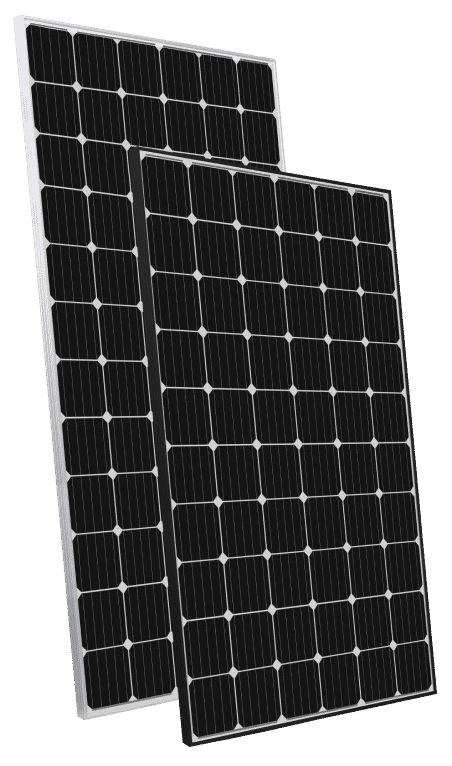Solar Energy Equipment and Solutions

Scroll down
Solar Energy Equipment and Solutions
Today’s Industry is so complex that customers require ongoing product and service support from both the manufacturer and their representative. To meet project deadlines, it is crucial to choose the best products and/or services in today’s market. Nevada Solar Group has a great track record of providing excellent service and product support to customers long after their orders are completed.
Nevada Solar Group is a manufacturer’s representative firm that offers products to the Natural Gas Mass transit, Storage, and Allocation, Energy Production, Refineries, Waste Water, and Water Industries. Nevada Solar Group is a well-known direct representation of manufacturing goods and services, with a primary goal of resolving customer issues.
Nevada Solar Group offers a variety of services and products to assist our customers and owners at every stage of their journey. Nevada Solar Group’s practical solutions, local knowledge, and global connections give owners and cooperatives a competitive advantage in achieving their objectives. Through our performance efforts, we invest in programs that help develop new generations of industry leaders, improve company safety, and strengthen our local communities.
What solar energy equipment do I need to go solar?
You’ve likely spent time researching financing options, tax breaks, and the best solar installers if you’re thinking about installing a solar panel system. You should also learn about the equipment required to make your solar panel system work. Although the components of a PV system look simple, there are many options for brands and products that can complicate the process. To help you choose the right hardware, we’ll provide a breakdown of all aspects of solar power equipment.
Types of equipment and technologies for solar power systems
You will need the following equipment to go solar:
- Solar panels
- Inverters
- Racking
- Performance monitoring
- Storage option (battery connection or grid connection).
How to become a solar electrician
A solar photovoltaic installation license is not required. However, this type of work is a great way to start your journey towards becoming a solar service electrician. It will help you understand how the various components of a solar electric system interact.
- License for Electrician in State or Jurisdiction – Solar electricians are capable of diagnosing and troubleshooting operational issues, performing complicated wiring installations, installing system monitoring software, and bringing solar electric systems online. They would be subject to the same licensing laws in each state. Any non-residential wiring work must be done under separate licenses in states or other jurisdictions. This includes those who are employed in power generating stations or substations that install and maintain the electrical equipment connecting a solar farm to an electrical grid, or those who use industrial generators, inverters or transformers, or any other high-voltage work.
- Associate Degree Programs – A few community colleges now offer associate’s degrees for solar energy technology. These degrees can be used as a quick way to get into entry-level jobs at solar installation companies. An associate’s degree is more desirable for new job applicants. They may also be able to earn supervisory positions with greater ease as they gain experience.
- Apprenticeship – You can become a solar electrician by getting a certificate or an associate’s degree from a community college. Then, you will gain relevant work experience through an apprenticeship. As with any type of electrician, it requires that license candidates are hired as apprentices and work for several years under the guidance of more experienced solar electricians. Candidates can usually test to become qualified journeymen after two to four years of work as apprentices. At that point, they are allowed to work independently. These electricians could be eligible for the master electrician license after working as a journeyman for 2 to 3 years.
- Professional Certification – A professional certification is voluntary and should not be confused or equated with an electrician license. This is a legal requirement that is enforced by the state or local government. Employers may require job applicants to have a professional certification in order to ensure they are proficient in solar applications.
As a team, you will install residential solar panels in a safe and efficient way. The experience of the Electrician will be a valuable asset in helping us to develop a culture that values safety, responsibility, appreciation, quality service, and sets the industry standard in solar installation.
Solar panels
Your primary equipment decision will be the type and brand of panels you choose for your PV system. Our complete ranking of the top solar panel brands on the market will help you compare and contrast the top brands.
When weighing your options, you should consider efficiency, cost, warranty, and type of technology. There are two types of solar panels: monocrystalline or polycrystalline. Although both types share the same function and are made of silicon cells, the outside appearance and cost of each type are vastly different. Monocrystalline panels, which are more efficient but more costly, come in a darker or black color. The lighter, more efficient, polycrystalline panels are the less expensive and less efficient choice.
String inverters
A string inverter is also known as a central inverter. It connects your solar array
Microinverters
Microinverters attach individually to each solar panel unlike string inverters. This maximizes the production of your array. As you can see, even if one panel is blocked or shaded by clouds during the day, it won’t affect the rest of the production. Each panel has its own microinverter. A microinverter can also monitor the performance of your array at a panel level, which is a big plus for homeowners who want to closely track each solar panel’s output. Microinverters may be the most efficient technology option but they also come at a high price.
Power optimizers
A power optimizer can be thought of as a combination of both micro inverter or string inverter. Power optimizers are also installed at each panel, just like microinverters. They are more affordable than microinverters and slightly more costly than string inverter systems. Power optimizers are great for roofs with shading problems or panels that have to face in different directions. Power optimizers are similar to microinverters and provide performance monitoring for each panel of your system. While power optimizers can be used to “condition” DC power from solar panels, they do not convert it into inverters. Instead, they pass the conditioned DC power onto a central inverter for conversion. Although power optimizers can increase your system’s efficiency they cannot offer the same efficiency as a microinverter.
Solar racking
Many homeowners are surprised to discover that solar panels aren’t nailed directly to their roofs but mounted on solar racking equipment. Racking allows the solar installer to angle your panels to maximize performance. It also attaches your array to your roof with minimal damage. The ideal angle for solar panels is between 30 and 50 degrees.
Racking refers to rooftop installations, but there is mounting equipment suitable for ground mount solar or solar carports. Both can serve the same purpose, maximizing sunlight exposure by maximizing the angle of the panels. Ground mount solar
Performance monitoring and tracking systems
The best reason to go solar is the ability to see your electric bills decrease over time. A good performance monitoring system is essential for solar homeowners. This handy piece of equipment tracks the hourly electricity produced by your solar system.
Monitoring systems are fun to use to monitor your panels and help you identify potential problems. They also allow you to ensure that your panels produce the most electricity possible. There are two types of monitoring systems: On-site monitors that are installed with your panels and remote monitors that can be accessed online.
Extra: energy storage
Many homeowners who are interested in solar energy want it to be possible to store some of their power, so that they can provide power even during dark hours and other adverse weather conditions. Many states have net metering that allows homeowners to store their electricity grid as backup. However, adding a battery to your system may make sense. The solar-plus-storage (also known as solar batteries

Equipment and Solution Cost
While the cost of installing a solar system’s physical hardware is the largest, the cost of solar energy equipment and technology is not as high as you might think. Materials for your system will typically only make up 25 percent of its total cost. Other soft costs, such as advertising budgets and training certificates, are also included in the total cost of a solar contractor’s system.
The equipment in your solar installation is the most important factor that you can control. This means that your greatest opportunity to influence the price of your installation is not through comparison shopping on the Nevada Solar Group Marketplace. However, this can help reduce costs by up to $5,000 to $10,000 before incentives. We have listed three scenarios where the right hardware choice can make a significant impact on your equipment decision making process.
Energy Equipment and solutions Local Installers
The equipment you choose will have a significant impact on the amount of money you pay for a solar panel system. These decisions will also affect how much your system can save you over its lifetime. Our Solar Calculator will give you an instant estimate of the cost of your system. It uses your electricity consumption as well as market prices to calculate your exact solar cost. Once you have figured out the real cost of installing solar, you can start comparing quotes from local installers and begin to plan your equipment.
Explore our online technologies and databases for building business intelligence, search for assistance, evaluate our company information, or communicate your issues and questions. You can depend on our skills and knowledge in the worldwide energy sector and our assistance for devices that control, produce, distribute, or control energy to expedite your access to target market data.
We can help you keep your equipment safe and reduce risk. We will help you demonstrate quality, reliability, and performance so you can confidently and efficiently bring products to market with great value. Members who use the cooperative’s products, services, and supplies own and manage them. They also operate in many other sectors of society. People come together in cooperative systems to increase their buying power, access goods and services, and create economic opportunity.
Nevada Solar Group’s teams work together to supply the services, products and expertise that cooperatives require to feed a growing number of people. Nevada Solar Group employees help to empower industry through creating connections that lead to shared success.
You and your customers will be able to take the stress out of managing a business with the right equipment. Equipment for bulk customers, on market needs, convenience stores and more is available from us. We also have a knowledgeable team of experts who can help you meet your sector equipment needs.
Our network of preferred vendors will help you find the right equipment at a competitive price and with great value. Our Nevada Solar Group Equipment Store has industry-leading equipment options.
Nevada Solar Group Equipment can help you find solutions to your specific needs. Our team of experts can help you with everything from solar energy equipment and solutions to special programs to storage problems that are unique. You can connect with us online via website or in person anywhere around the globe. We are available to assist you wherever your business requires us to be.
We provide the best prices for our energy equipment sources and the best solutions. We will keep in touch with you until you are completely satisfied. Please contact us if you need a quote or have any questions about clean energy suppliers. We gladly await your response!

Contact Us For A Free Solar Quote
First name is required
Last name is required
Email is required
Phone is required
Please enter a valid property address
Property address is required
Schedule Your Appointment
ATTACH YOUR UTILITY BILL (optional)
Some information is missing or is incorrect, please fix the issues above and resubmit.
Thank you for your request
Your appointment has been added to our calendar.
The consultation will be online or over the phone. Please prepare a copy of your electric bill or energy usage history for your consultant to give you the most accurate proposal.